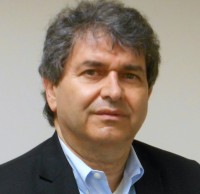Finding Ways to Overcome Being Shortchanged in the Lottery of Life
By Richard Cirulli

It is fair to say that life is a lottery, with our birth being the first drawing, rendering us little choice of our looks, intelligence, social status and health.
These are only the visible sides of our life lottery, and not easy to disguise. In essence, we grow into our likeness.
This drawing picks our psychological and mental well-being that are easier to disguise and deny to a degree, since most of our thoughts and emotions are not transparent and well-guarded. Though it’s our character, we are free to forge in the hope of being better people.
Although science has advanced health care to the point of reducing morbidity, extending life spans and offering many cosmetic procedures to help minimize some of the results of a bad draw, our frail human condition, along with our emotions that follow us like a shadow, oftentimes is a cause of many of our problems that filter into society. Our personal psychology when interacting with society becomes a community’s sociology.
There is a school of thought that supports the view that philosophy is one of the medicines of the soul, along with psychology and psychoanalysis. My tongue-in-cheek approach to my articles is grounded in the belief humor has a healing power and can also be applied to learning as well.
To find true happiness and peace, we need to transmute our existence into essence. This may be more difficult in our stressed-filled and consumer lifestyles. To achieve this, we may need to take a closer look as to what we choose to pull off from the rack of life to secure our true happiness, and not a perplexing surrogate desire. Maybe we should approach finding our essence of life by finding harmony in the analogy of opposites.
Let’s take good, old Quasimodo from “The Hunchback of Notre Dame.” Unfortunately for Quasimodo, he did not do well with life’s first draw. Old Quasi (as known by his fiends) was given the nom de plume as the ugliest person in Paris, unlike the lottery winner, Narcissus, of Greek mythology fame.
Quasi was born with red bristles for hair, a large wart on one eye, a hump between his shoulders, a protrusion from his chest and deaf from sleeping next to the bells at Notre Dame. He had to wake up every morning knowing its hump day.
True, he wasn’t born deaf, just found himself with little choices to sleep. Like many of us boomers who decided to fix ourselves in front of woofer speakers while listening to rock music.
Quasimodo is jeered with taunts and ridicule that gives the crowd a false sense of self-esteem and confidence, from a philosophical and psychological perspective. What the crowd sees in Quasimodo’s ugliness is their own narcissism. As long as Quasi is in town, no one will look at their own imperfections – also the result of their lottery draw.
And unlike Narcissus, who won the handsome lottery, his self-obsessive nature wins him the wrath of Nemesis, the personification of righteous anger, who condemns Narcissus to love no one but himself. He dies looking at his own face in a pool of water, unable to break away from his own sight. This is some real heavy, reflective karma.
We can learn a lot about ourselves in Quasimodo’s story if we sincerely place ourselves within the context of our place in life. What the crowd seeks to obtain in jeering and mocking Quasimodo is a false escape from their own morbidity and mortality and to believe they are as beautiful as Narcissus. What Quasimodo lacks in beauty his tormentors possess in interior ugliness and cowardness. Though the crowds mock Quasimodo, in the end he is the one who saves the city from the conspiring and malicious Frollo, who has committed a number of atrocities. Quasimodo was able to build his character and boldness, to redeem the same city that mocked and tortured him.
We should consider avoiding such metaphors as shoot for the stars, aim for the moon we so often hear as a guide for life. Rather, we should not shoot for anything that is beyond our capability, but also not to abstain from achieving goals within our capability. So, if you wish upon an evening star, wish for good eyesight complete with a good scope before you take aim and shoot. A sure miss will result in a meteor of disappointment that will come crashing down upon our unreachable dreams.
Philosophy and the study of the classics are excellent tools that we can use to help straighten our crooked timber of humanity, as opposed of using our frail human condition as a weapon to construct stakes to impale our human advancement on. Be safe! Be well! Be happy! Be nice! Amor fati!
Dr. Richard Cirulli is a published author, playwright and retired professor. His body of works can be viewed at www.demitasseplayers.com. He looks forward to your comments, and can be reached at profcirulli@optonline.net.

Examiner Media – Keeping you informed with professionally-reported local news, features, and sports coverage.
